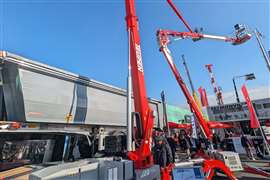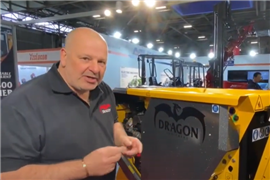UNACEA supports flexibility on European emissions
23 November 2010

Italian equipment association UNACEA has joined a chorus of calls supporting increased flexibility for engine manufacturers that are struggling to comply with upcoming European laws limiting the levels of pollutants emitted from diesel engines.
UNACEA echoed the Committee for European Construction Equipment (CECE) in supporting an increase in flexibility allowances under the upcoming Emissions Directive.
The proposed change would allow European equipment manufacturers to bring more "old" engines to the market while phasing in new, more environmentally-friendly designs in a process far less drastic than simultaneous, across-the-board replacements.
"It is a very important measure which would allow the costs to be to distributed over a longer period of time - costs which, given the current crisis of the sector, could force many producers to close," UNACEA said.
The next stage in the European Emissions Directive is a big step which would be likely to see exhaust aftertreatment systems made compulsory in new engines.
As CECE has pointed out, this would mean that equipment manufacturers would have to make significant design changes to the machines in order to incorporate the physical bulk and added complexity of such components.
Compliance costs for manufacturers are significant, and the legislation already has certain flexibility provisions written in to help manufacturers schedule the introduction of new products over time and phase out old machinery across ranges.
Currently, engine manufacturers are still allowed to bring an annual production allowance of 20% "old" engines to market after the new laws come in to force.
But the European Commission submitted an amendment to the European Parliament in July to increase this allowance to 50%.
"CECE and its partners believe this to be essential to the smooth implementation of these demanding laws. It also believes the emissions impact of this would be small and that there would not be any additional administrate burdens involved in making this change," the trade association said.
The proposed changes would expire on 31 December, 2013, and the European Parliament is due to make a decision on whether to adopt them in the coming months.
Meanwhile, vice president of UNACEA and CEO of Komatsu Utility Europe Enrico Prandini has described the rules on emissions and the problem of unfair competition as "the two main issues" currently facing the European construction industry.
Speaking in Rome on 22 November, Mr Prandini said the interests of the industry and those it employs must be defended against machines that are not compliant with European regulations.
"It is irrational that the European manufacturers are required to adhere rigorously to the numerous regulations for the production of machines, while non-compliant machines are allowed to go through European customs. In this way, the whole collectively is damaged," Prandini said.
UNACEA is a new Italian construction equipment association. It was born nine months ago, and says it represents over two thirds of the Italy's earthmoving equipment industry in terms of production. UNACEA is an aggregate member of CECE, which is a collective of the national associations of 13 countries representing around 1200 firms.






